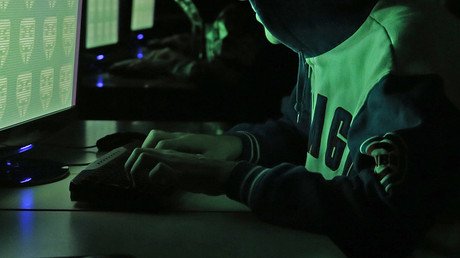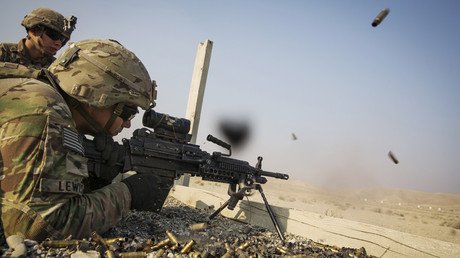‘Russia will continue to be universal scapegoat, at least until Trump takes office’
Germany’s initiative to create a special task force to tackle “fake news” simply follows the mood in Washington, which should pass when the new Trump administration takes over and starts looking forward, retired US Army General Paul E. Valley told RT.
RT: We haven’t actually seen any evidence from the US. And now Germany is preparing to defend against what it says is going to be Russia’s alleged meddling. With no real evidence of even one fake story coming from Russia, isn’t it a bit presumptuous?
Paul Valley: I think it is presumptuous. And you’re right, there’s been no hard evidence that’s been divulged or put forth to the international viewership out there over the involvement of Russia. So I would think now with the new Trump administration, this administration is going look at today and tomorrow, start looking forward and not so much in the past anymore and blaming everybody ... the mood of the United States is now to move forward and so lot of this action seen in the last thirty days before Trump takes over the presidency is a lot of rambling on innocuous subjects and information that you call the “fake news.”
RT: Facebook promised to counter “fake news”. Do you think governments also need to do this and set up special units to tackle misinformation?
PV: I think the less that government gets involved whether it be in Germany or in the United States [the better]… but the media itself [should] take responsibility for now focusing on the truth-based, good investigative journalism and presenting that ... through the TV, radio, through the internet or whatever. But I would think that governments are going to continue to monitor this, because some media outlets are violating that type of strict truthfulness.
RT: Angela Merkel’s popularity is at a five year low. Do you think she might be trying to use Russia as a scapegoat just in case she loses?
PV: It seems everybody is using Russia as a scapegoat, but I think Russia’s standing up very strong and also President Putin. And again, looking at the reality of the situation, there will be continued talk, there will be continued discussion of this issue at least for the next two or three weeks. And then, I think, it will pass into history.
RT: President Obama signed a defense spending bill, and that will set up a center to counter “foreign propaganda.” How are US officials going to decide what is foreign propaganda?
PV: Well, I think they are looking at the National Defense Authorization Act, that we might call a corruption of officials, the corruption in the media. But I can tell you that the priority of that act – and it always was – is base operations ... [and] also increase wages for our armed forces. Now, the Magnitsky Act in there, as you recall, really focuses on sanctions against Russia or the officials that have been involved in what they claim to have been a cover-up of the Magnitsky affair which happened back in 2007-2008.
But again, any kind of sanctions, the President of the United States is the only one who can terminate any of those sanctions under the law. So I think you should be confident that President Trump and his administration are going to look forward, and they are not going to look to enforce this act other than what is needed for our armed forces in the United States, in my opinion.
RT: Some people would argue, that the political shocks we’ve seen lately – Brexit, Donald Trump election – are a result of the electorate being better informed. While now we hear that’s all happened because of the “fake news.” Do you think that some false stories can have such a considerable influence on elections?
PV: It’s been going on for so long, as we look back. So many different news stories planted: We’ve seen evidence in Syria and some of the stories that’ve been planted there as fake news. Fake news in the United States, particularly against President-elect Trump as we’ve been able to witness.
I think when we are looking at the situation now, we have a whole new world that we can look at to change. And I’ve seen Brexit, and I think you are going to see France probably be the next European country leaving the European Union. Things are changing very very quickly in Europe, particularly now as we’re seeing more vicious radical Islamic attacks and perhaps an increase there. So, Europe is changing, and I hope for the good.
The statements, views and opinions expressed in this column are solely those of the author and do not necessarily represent those of RT.













